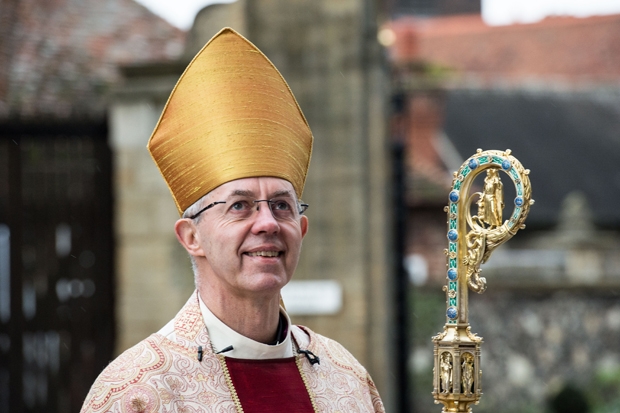Quarrelling about the date of Easter has been a Christian pastime for centuries. The chief bone of contention is whether Easter should be held on 14th Nisan in the Jewish calendar — that is, at a fixed point of the lunar month — or whether it should be held on the nearest Sunday to this date. The Celtic church(es) evidently had their own ideas on the question. In the year 651, Queen Eanfleda of Northumbria was fasting on what she regarded as Palm Sunday on the very day that her husband, Oswy, King of Northumbria, was celebrating Easter. Behind the seemingly batty arguments lay the world-changing conviction that Christ’s death and resurrection had been a new Passover. Now we discover that Christian leaders are uniting behind the idea of having a fixed date for Easter, regardless of the cycle of the moon. Their reason? If the reports are correct, it is to allow people to plan their holidays. This destroys all the poetry and symbolism of Easter’s relation to the Jewish Passover. Apparently Pope Francis, the Ecumenical Patriarch of Constantinople, the Archbishop of Canterbury and the Coptic Pope Tawodros II — presumably in consultation with Ryanair, Tesco and Disney World — are all agreed on the plan to turn the central mystery of the Christian faith into a mere spring break.
Meanwhile, the Archbishop of Canterbury last week assembled the Anglican Primates from all over the world to see if they could resolve the vexed question of modern ‘sexuality’. After a token apology to gays, transsexuals et al for the ‘hurt’ caused them over the years, the Archbishop agreed to ‘suspend’ the American Episcopal Church for three years as a punishment for supporting gay marriages: our gentle Archbishop’s substitute for excommunication by bell, book and candle. I am sure that the American bishops were sobbing into their in-flight trays of rubber chicken all the way across the Atlantic at the prospect of being excluded from various pan-Anglican committees about climate change or liturgical reform. It is easy to mock the Anglican liberals. Especially if you are one, as I find to my surprise, in old age, I have (sort of) become. The objections made by some African delegates to the American church, however, were truly stomach-turning. If only the Archbishop of Canterbury had said to them words to this effect: ‘The Bible scarcely mentions homosexuality. If you are so keen on obeying the Bible, why not obey some of its more obvious teachings, such as the repeated injunction not to give your money on usury; or the clear duty not to sit in judgment on other people?’
The Chancellor of the University of Oxford, Chris Patten, recently said there was nothing of which we should be intolerant except intolerance. Probably The Danish Girl is a prettified version of a tragic life, but I found it a moving film. The wife of the Danish girl is heart-broken, partly because she has lost the man she loves, but partly by her failure in empathy. She is trying, all the time, to understand what has happened to him/her. She can’t do it. I do not suppose any of us can, except those who know that inside their bodies they are really a different gender. Alas, it is not only African bishops who are intolerant. Dr Germaine Greer, whom God preserve, is entitled to her views about transsexuals, as is her fellow Aussie Barry Humphries. I love and admire them both, but what makes them so certain that men who undergo the strange journey of living as a woman and then having an ‘op’ are merely ‘mutilated men’, not women? Are any of us ‘merely’ anything? Aren’t all lives transmogrifications of one sort or another? Germaine and Barry are cleverer people than I am — but it seems stupid to lay down the law (literally) to transsexuals about a matter which, by definition, only transsexuals can understand. How could it hurt the rest of us if a number of people ask to change the gender classification on their passport?
One answer could be, when a man discovers he is a woman but happens to be a member of an exclusively all-male club. I have momentarily mislaid my copy of Jan Morris’s superb autobiography Conundrum, so I cannot remember if she tells this story herself, or whether it is merely repeated in the club where she was once a much-loved member. She spent her last night as a man sleeping in the club, and bravely went into the coffee room for dinner dressed in female attire. Monsignor Alfred Gilbey, the club pet, was dining at his usual table, clad, as so often, in an elegantly buttoned soutane, with a sash of magenta watered silk around his waist. Seeing James Morris, as Jan still technically was, sitting at her table harmlessly ordering some lamb cutlets, the Firbankian cleric summoned the head waiter and asked for the eviction of Morris because of the impropriety of her costume.






Comments